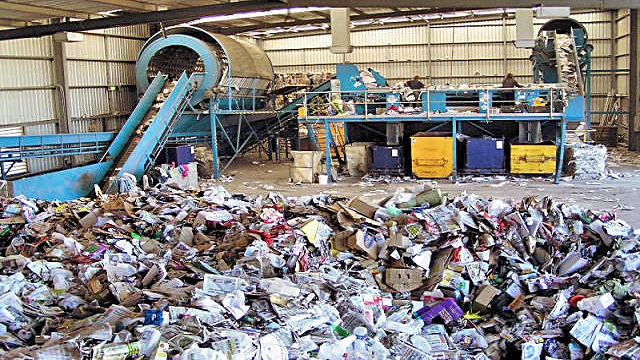Not only electronic waste, organic waste too is full of employment opportunities. China has been turning waste into gold for itself.
Somebody’s waste is other’s gold – this is a fast spreading word in the market. China is a shining example of this modern saying where the effective waste management has been earning the country good returns. Perhaps China is the only country which imports waste too!
It is a well-known fact that a lot of electronic waste, including cell phones, carries precious metals like platinum and gold. And harvesting these metals is slowly becoming a good career.
The good thing about this career is that it is never going to lose its future till the human kind resides on this earth and moves towards development. The raw material is ample as 700,000 tonnes of electronic waste is created every year in the country. From a 40-foot container-load of printed circuit board, chemical engineers can recover about 10 kg of gold.
Companies are tapping into more waste for business. Waste management plants are coming up in the cities which only means more employment.
Not only electronic waste, organic waste too is full of employment opportunities. In fact it is a much bigger business proposition – it constitutes 35 per cent of all garbage generated in India. Water management, construction waste and debris (30 to 40 per cent) and hazardous waste, including bio-medical waste, too, call for professional management.
The country lacks experts in bio-medical waste management. Then there is huge scope for recycling of batteries, tubelights and CFLs, which again requires skilled professionals.
The international carbon credit market has opened sea of opportunities for waste management professionals. It was their presence that the Municipal Corporation of Delhi recently earned Rs. 5 lakh worth of carbon credits for one of its waste management plants.
Environmental engineers and postgraduates in environmental science design sites and processes and do lab-based analysis work, respectively. Students from other disciplines, such as chemical, civil, microbiology and biotechnology, are involved in different aspects of waste management
A waste management consultant or professional can earn about Rs 20,000 or more a month, depending upon his/her aptitude, expertise, and place of employment.
The skill set requires you to be willing to get your hands dirty. You should have ideas to change the waste into something useful. It needs constructive approach and yes a good knowledge of your subject. All of it works only when you have an interest and concern for the environment.
Taking up science at the plus-two level is a must. After this, you can go for a Bachelor’s in environmental, civil, chemical or mechanical engineering, microbiology, or even biotechnology. Admission to these subjects is mostly through competitive exams. You may pursue a Master’s in environmental engineering as well. Else, you could also do a BSc programme and follow it up with a Master’s (MA/MSc) in environmental studies.





